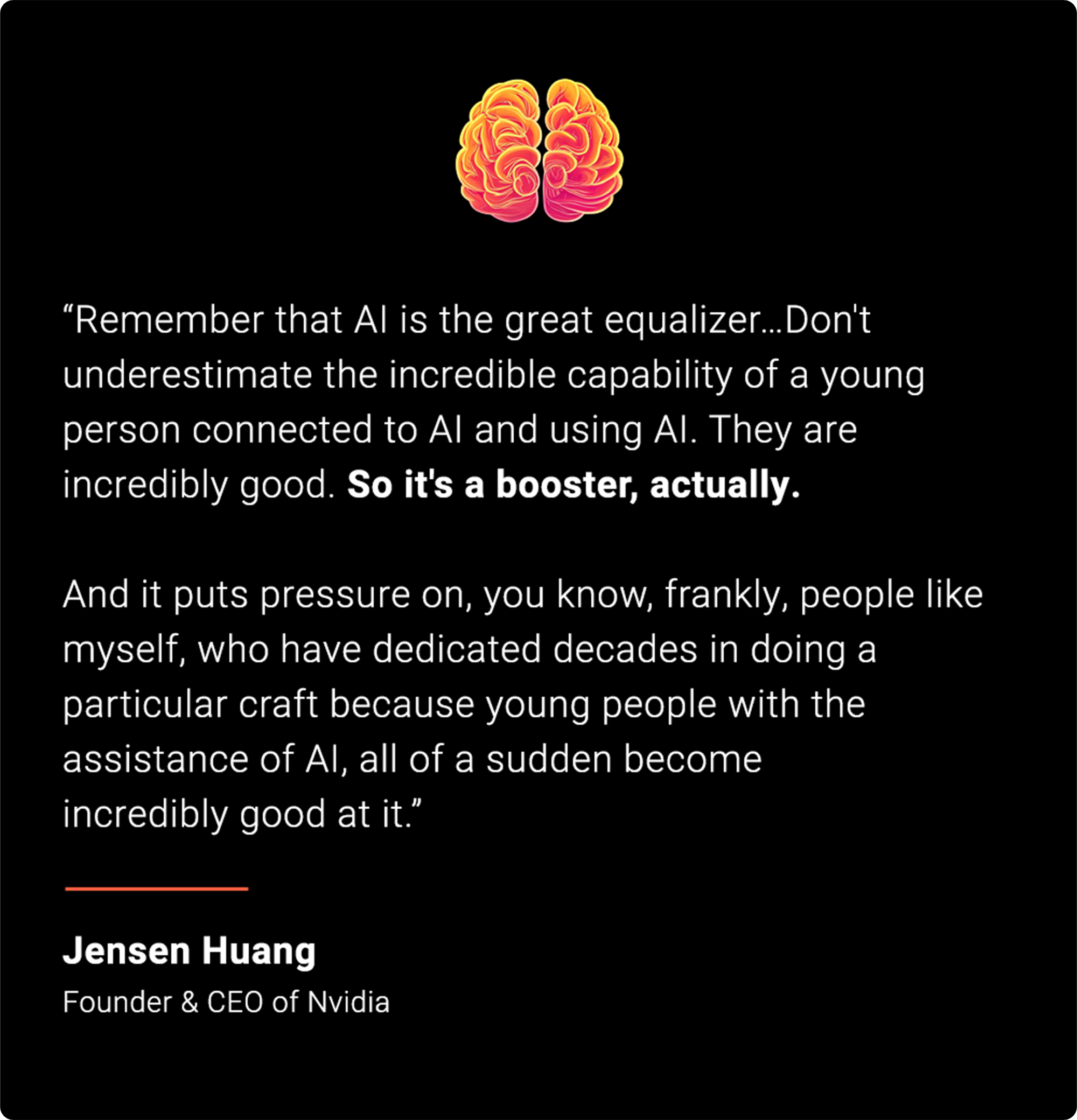Monday Memo

A Byte of Knowledge
When a prospect hits you with an objection, your gut tells you to fight.
To prove them wrong.
To show them the “logic” they're missing.
That’s a quick way to lose the sale.
Because you’ve just made them an enemy.
The better move?
Agree with them.
Completely.
It’s a judo move.
You see, you're not blocking their force, you’re redirecting it.
When they say, “This is too expensive…”
You don’t argue.
You say, “You’re absolutely right, it is a serious investment.”
Suddenly, the fight is gone. There’s nothing to push against.
You’re on their side of the table.
Only then, once they’re disarmed, can you explain why it's worth the price.
Stop fighting your customers.
Agree with them first.
Then guide them to the truth.
🚀 Whether you're selling a $50 supplements or a $10,000 coaching program – having these 5 'Copy Blocks' on your landing page could be the difference between crickets and an avalanche of cash flow.
Discover All 5 'Copy Blocks' Now
Something to Ponder

We Asked – AI Answered
Our Question:
"What are three of the greatest marketing ‘PR Spins’ of all time…where a company turned a scandal, a mistake, a humiliation into a win."
AI's Answer:
✅ 1. Tylenol's Cyanide Crisis (1982)
“They turned mass murder into a masterclass in brand trust.”
What Happened:
- In 1982, seven people died in Chicago after taking cyanide-laced Tylenol capsules.
- Johnson & Johnson didn’t cause it—but their product was the vehicle. Sales dropped nearly 90% overnight. The brand was on life support.
The Spin:
Instead of ducking, delaying, or lawyering up, J&J:
- Immediately recalled 31 million bottles—at a cost of over $100 million.
- Created tamper-evident packaging (now standard industry-wide).
- Launched a transparently honest media blitz, with full-page newspaper ads, open press conferences, and hotline numbers.
- Reintroduced the product just 6 weeks later with new safety features, and coupons to win back trust.
The Result:
- By early 1983, Tylenol had regained 80% of its market share.
- Today, it’s a textbook case in crisis communication and brand rehabilitation—studied at Harvard, Kellogg, and Wharton.
- PRWeek ranks it the #1 PR campaign of the 20th century.
Lesson: When disaster strikes, radical transparency beats spin. J&J didn’t just protect their brand—they created industry-wide trust standards.

✅ 2. Domino’s: “Our Pizza Tastes Like Cardboard” (2009)
“They took humiliation and served it with cheese.”
What Happened:
- By 2009, Domino’s was a punchline. Taste tests showed customers preferred frozen pizza.
- Internal surveys showed customers rated the pizza a 2.2 out of 10.
- The brand perception was so bad, it became an existential threat.
The Spin:
Domino’s leaned into the shame:
- They launched the now-legendary “Pizza Turnaround” campaign, where execs read brutal customer comments on camera.
- One line: “Domino’s crust tastes like cardboard.”
- Then they rebuilt the recipe from scratch, re-trained staff, revamped kitchens, and invited influencers and critics to blind test the new pie.
The Result:
- Within a year, same-store sales jumped 14.3%—one of the biggest gains in fast food history at the time.
- Domino’s stock went from $8 in 2009 to over $300 by 2021—a 3,600% return.
- It also repositioned Domino’s as a tech-forward delivery company, not just a pizza chain.
Lesson: When your product sucks, don’t defend it. Own the truth, fix it fast, and invite the world to watch. Vulnerability is a superpower—if paired with real change.
✅ 3. Volkswagen’s “Think Small” Campaign (1959–60s)
“They turned a Nazi car into the most iconic ad campaign in history.”
What Happened:
- The Volkswagen Beetle was designed in Nazi Germany, under the supervision of Hitler himself.
- Post-WWII, trying to sell this car to Americans—who just fought that war—was a nightmare.
- It was also tiny, ugly, and underpowered in the era of American muscle cars.
The Spin:
- Enter Bill Bernbach’s agency DDB, and a team including Jewish copywriter Julian Koenig and art director Helmut Krone.
- They didn’t hide the car’s flaws. They highlighted them.
- Headlines like:
- “Think Small”
- “It’s ugly, but it gets you there.”
- “Lemon.” (next to a photo of a Beetle that failed inspection)
They created an anti-ad. No puffery. Just deadpan honesty, wit, and minimalist design—the exact opposite of the era’s loud, exaggerated car ads.

The Result:
- It became Ad Age’s #1 campaign of the 20th century.
- It changed how ads were written forever—influencing generations of copywriters.
- And it reframed the Beetle from “foreign joke” to “cool, quirky underdog.”
Lesson: Great marketing doesn’t always need reinvention. Sometimes, you win by embracing the brutal truth—and making it a badge of honor.
Thanks for reading the Monday Memo.
Until next time!
The AI Marketers
P.S. Help shape the future of this newsletter – take a short 2-minute survey so we can deliver even better AI marketing insights, prompts, and tools.
[Take Survey Here]

